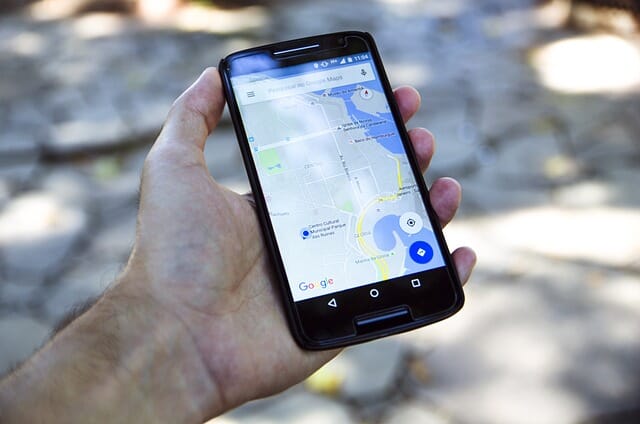
Is This Number Safe? How to Conduct a Thorough Phone Number Search
I remember the day vividly; my phone buzzed with an unknown caller. Initially, I was hesitant to answer, but curiosity got the better of me. After a few rings, I picked up and was greeted by a cheerful voice trying to sell me something that I didn’t need. While this was harmless, it left me wondering about the safety of the call and who might have been on the other end. In today's world, where scammers and unwanted calls are rampant, it is essential to know how to determine if a number is safe. In this article, we will explore how to conduct a thorough phone number search in English language.
Understanding the Importance of Phone Number Searches
Every day, millions of people receive phone calls from numbers they do not recognize. Some may be legitimate businesses trying to connect, while others could be scams aiming to deceive unsuspecting victims. That's why engaging in a phone number search has become increasingly important. By using reverse phone lookup services and other resources, you can gain valuable insights into who is calling you before deciding whether or not to engage with them.
What is Reverse Phone Lookup?
Reverse phone lookup is a process that allows you to identify the owner of a specific phone number. It involves inputting the number into a database that compiles information from various sources such as public records, social media profiles, and more. This service can help you find out if the number belongs to a reputable business or an individual with malicious intent.
How to Conduct an Effective Phone Number Search
When you're faced with an unfamiliar number, follow these steps for conducting a thorough phone number search:
Use Online Reverse Phone Lookup Services: Start by visiting websites that specialize in reverse phone searches. These platforms often provide free basic services but may charge for more detailed reports.
Check Social Media: Many people link their phone numbers to their social media accounts. A quick search on Facebook or LinkedIn could reveal valuable information about the person behind the number.
Search Public Records: Various public record databases allow you to enter a phone number and see if any records exist related to it — including criminal history or civil litigation.
Consult Your Contacts: Sometimes the simplest answer lies within your circle of acquaintances. Reach out and ask if anyone recognizes the number.
Look Up Area Codes: Understanding area codes can provide context about where the call originates from which may help indicate its legitimacy.
Analyze Call Patterns: If you've received multiple calls from the same number at odd hours or frequently throughout the day, consider this suspicious behavior that warrants further investigation.
Report Suspicious Numbers: If you determine that a caller is trying to scam you or harass you, report them through your local authorities or consumer protection agencies.
By following these steps diligently, you will arm yourself with knowledge about unknown callers and significantly reduce your risk of falling victim to scams.
Is This Number Safe? Recognizing Red Flags
During your search using tools like reverse phone lookup or online databases, be sure to stay vigilant for certain warning signs Caller ID lookup that indicate potential issues:
-
Unusual Caller Behavior: If someone presses aggressively for personal information or insists on urgent action without providing clear reasoning.
-
Lack of Information: Legitimate businesses typically have some level of online presence; if nothing comes up during your search, proceed cautiously.

-
Scam Reports: Websites dedicated to reporting scams often have user-generated content detailing experiences with specific numbers; check these resources before engaging further.
-
Voicemail Messages: Scammers often leave vague messages urging immediate callbacks; deciphering these can offer insight into their intentions.
By being aware of these red flags during your phone lookup process, you can safeguard yourself against potential threats effectively.
Frequently Asked Questions (FAQs)
What should I do if I receive persistent calls from an unknown number? If you're receiving frequent calls and feel uncomfortable answering them, consider blocking the number after conducting your research through a reverse phone lookup service for added peace of mind.
Are there free services available for reverse phone lookups? Yes! There are several free resources available online that provide basic details about a caller's identity; however, comprehensive reports may require payment.
How accurate are reverse phone lookup services? The accuracy can vary based on data sources and privacy settings associated with individuals’ numbers; it's advisable to cross-check information when possible.
Can I trace blocked numbers using reverse phone lookup? Blocked numbers won’t show up directly in your call logs; however, if you unblocked them temporarily for research purposes using lookup tools could yield results based on existing databases.
In summary, knowing how to determine if “Is This Number Safe?” requires diligence and attention during Reverse telephone lookup your phone number search processes. By utilizing various tools such as reverse lookups and remaining aware of warning signs during interactions over incoming calls—your ability to protect yourself against potential threats will significantly improve! The next time an unknown caller attempts contact—don’t hesitate—conduct a thorough inquiry first!